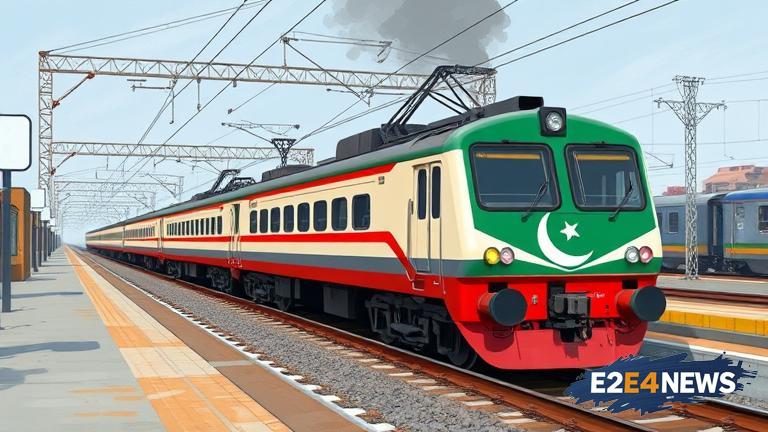The Senate Standing Committee on Railways has emphasized the need to accelerate the completion of the ML-1 rail project, a vital component of the China-Pakistan Economic Corridor (CPEC). The project aims to upgrade the existing railway line from Karachi to Peshawar, increasing the speed and efficiency of rail travel in Pakistan. The committee has urged the Ministry of Railways to expedite the project’s completion, citing its potential to stimulate economic growth and create jobs. The ML-1 project is expected to have a significant impact on Pakistan’s economy, with estimates suggesting it will increase the country’s GDP by up to 2%. The project will also improve the safety and reliability of rail travel, reducing the risk of accidents and enhancing the overall passenger experience. Furthermore, the ML-1 project will increase the capacity of Pakistan’s railways, enabling the transportation of more goods and passengers. This, in turn, will help to reduce the country’s reliance on road transport, decreasing congestion and pollution. The Senate committee has also highlighted the importance of ensuring transparency and accountability in the project’s implementation, to guarantee that it is completed on time and within budget. The committee has called for regular progress updates and strict monitoring of the project’s finances. The ML-1 project is a key part of the CPEC, a massive infrastructure development program aimed at enhancing economic cooperation between China and Pakistan. The project has been hailed as a game-changer for Pakistan’s economy, with the potential to increase trade and investment between the two countries. The Senate committee has emphasized the need for close cooperation between the Ministry of Railways and the Chinese authorities to ensure the project’s successful completion. The committee has also urged the government to provide adequate funding for the project, to avoid any delays or disruptions. In addition, the committee has suggested that the government consider engaging private sector companies to help finance and implement the project. The ML-1 project is expected to take several years to complete, with a total cost estimated to be around $6.8 billion. The project will involve the upgrading of over 1,800 kilometers of railway track, as well as the construction of new bridges, tunnels, and stations. The committee has emphasized the need for careful planning and execution to ensure that the project is completed on time and to the required standards. The ML-1 project has the potential to transform Pakistan’s railway network, making it faster, safer, and more efficient. The project will also help to reduce the country’s carbon footprint, by decreasing reliance on fossil fuels and promoting the use of cleaner modes of transport. The Senate committee has urged the government to prioritize the project’s completion, citing its potential to drive economic growth and improve the lives of millions of Pakistanis. The committee has also suggested that the government consider establishing a separate authority to oversee the project’s implementation, to ensure that it is completed efficiently and effectively. Overall, the ML-1 project is a critical component of Pakistan’s economic development strategy, with the potential to drive growth, create jobs, and improve the country’s infrastructure. The Senate committee’s call to expedite the project’s completion is a welcome development, and it is hoped that the government will take prompt action to ensure the project’s successful completion.





